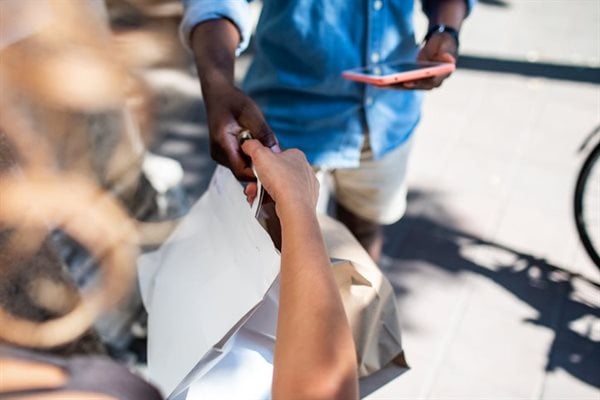
Top stories






More news















That said, Covid-19 also gave rise to opportunities – for those willing to dip their toes into digital innovations.
Already established as a secondary means of shopping for many South Africans, e-commerce has proliferated throughout 2020. According to Accenture, online sales comprised only 1.4% of retail purchases in 2019.
Over the last year, the latest Digital CX report has indicated an impressive growth of 200% in this sector.
In addition to the traditional e-commerce options, consumers can now purchase directly from their social media feeds, via WhatsApp, or even purchase online and collect their shopping in-store or at the kerb (aptly named click-and-collect and kerbside collections, respectively).
But this rise in convenience for consumers comes at a cost for retailers.
Retailers are now having to cover the usual overheads of their stores while employing additional personnel to take over the role of the customer in terms of selecting products and facilitating home deliveries.If this trend of e-commerce continues, retailers will need to rethink their strategies in order to incrementally fill the turnover gap that e-commerce has created.

In Europe, the trend to purchase items online from multiple retailers and have them conveniently delivered in one “basket” has taken off as a means for helping bridge this shortfall. One virtual basket filled with items from various retailers (grocery store, pharmacy, etc.) allows certain costs to be split. When you’re dealing with sales in mass proportions, the savings are noticeable.
This option is slowly making its way to market and is epitomised by the OneCart mobile phone application. Going forward, I think more of these offerings will start popping up as retailers evolve and look for ways to increase turnover while still adding value to customers who have grown to expect this type of service.
Multifunctional store spaces are not new – we’ve all seen 'grocery-restaurant' hybrids – but they are likely to be reimagined as a way to generate additional income and get consumers back in-store, albeit for shorter periods of time.In the United States, for example, retail company Kroger, which sells prepared foods at a number of its stores, has successfully hosted weekly wine-tasting events on Fridays’, where shoppers can pay for a tasting experience, purchase wines and enjoy an in-store meal such as gourmet sushi or make-your-own sandwiches.
Not only does this speak to the sociable aspect of shopping that South Africans enjoy so much, and which has been lost since the beginning of the Covid-19 pandemic and lockdowns, but it also helps retailers capitalise on spend that may not have happened should an event not have taken place.
Retailers should also consider delivery solutions that will reach the wider population.One option that has gained widespread popularity in Asia, and which is starting to take off in South Africa, is that of locker solutions. Essentially, consumers who live in areas outside of retailers’ delivery zones can order online and opt to collect their goods from a locker situated closer to their home. Deliveries will then be made to the locker, where the consumer can simply punch in their code and collect their parcels.
For businesses looking to turn their retail stores into multi-functional spaces, this is another option to consider as I expect larger retailers to start creating networks of smaller businesses that can help them fulfill this need in the future as a way to reach more consumers.
South Africa’s unique retail landscape affords it myriad options for innovation within the retail space.
While brick-and-mortar will have to look at multifunctional spaces – for example, a bar in the middle of a grocery store that hosts wine tastings each week while patrons can also shop for groceries or multiple sellers in one store that stock local produce and products not found elsewhere – e-tailers will need to look beyond the screen to provide consumers with diversity and easily accessible options.